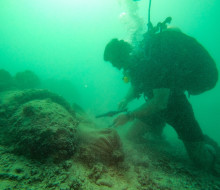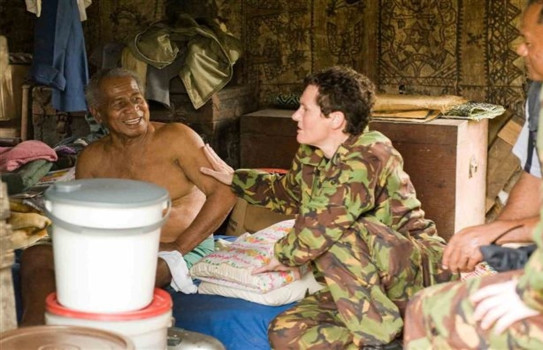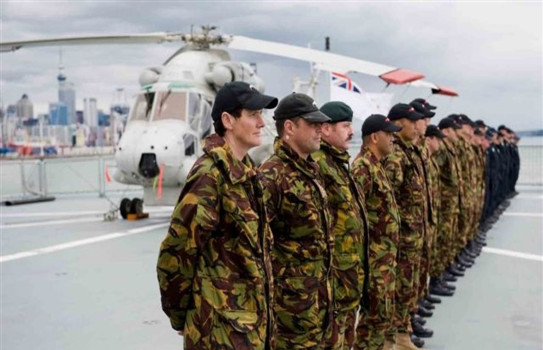
Second World War-era bombs in Vanuatu made safe by Navy divers
26 June 2024
Unfortunately you are viewing this website on an outdated browser which does not support the necessary features for us to provide an adequate experience. Please switch to a modern browser such as latest version of Google Chrome, Mozilla Firefox, Apple Safari or Microsoft Edge.
Ngā mihi nui
The remote West Coast township of Hari Hari, with its population of a nudge over 200 people, is where registered nurse Rose Fraser now serves her community.
It’s a far cry from the highlands of Papua New Guinea, Timor-Leste and the devastation following the 2004 Boxing Day tsunami in Indonesia where she’s previously worked.
But the Reserve Force officer still draws on experience and the lessons learned in those hotspots during her three-decade career with the New Zealand Army.
Captain Fraser studied nursing in Christchurch before joining the NZ Army in 1991, where recruiters told her that her rural Hawarden background would give her the steel to be a perfect candidate for the army.
Her resilience was put to the test through multiple deployments in the Pacific.
“I went on patrol with soldiers in Papua New Guinea and East Timor, climbing over hills and through forests,” she said.
“During one 10-day patrol in Bougainville, we were warned it was too dangerous for us to leave the village we were staying in so we had to organise for a helicopter to come get us the next day.”
Captain Fraser was also deployed to Banda Aceh, Indonesia, to aid with disaster relief after the 2004 Boxing Day Tsunami.
While she had a solid foundation of knowledge and experience, she often found on deployment it was her communication skills that proved invaluable.
“You had to show empathy even if you couldn’t speak the language. It was about your facial expression, body language and respecting the culture that you were in.
“It’s also about how we portrayed ourselves. When we were in uniform, we were representing our unit, we were representing nursing and were representing New Zealand.
“Even in the devastation, people were just patiently waiting, they were so grateful for what we were doing.”

Captain Fraser completing a house call during a deployment to Tonga
She has also been posted to camps and bases around New Zealand.
“Every day was different, whether you're in the field in Waiouru with the mortar unit or in inflatable boats with the engineers out in Lyttelton Harbour.”
After more than three decades, Captain Fraser says the culture, ethics and values of those she has served with which has kept her serving for so long.
“There has always been a high level of professionalism. I have worked with numerous doctors, nurses and medics and we all learn and grow from each other,” she said.
“It's all part of that service and duty; we are soldiers and human beings and it’s about combining both of those things.”

Captain Fraser, far left, parading aboard HMNZS Canterbury, headed to Tonga and Samoa after the 2009 tsunami
She stepped back from full-time service in 2013, joining the reserves for the New Zealand Defence Force’s Deployable Health Organisation.
It took time to get used to the differences of working for Health New Zealand Te Whatu Ora in Hari Hari, about 70km south of Hokitika, but credits the high standards she learned in the NZ Army for making it smoother.
“I’m working in isolation more now and making those clinical decisions isn’t always easy but I have a great support structure around me.
Being a reservist means I can easily tap into the huge network I have built which has a really good knowledge base – people are just a phone call away.
Even in the Reserves, Captain Fraser continued to make her mark and this year won the Reserve Officer of the Year Award within the Deployable Health Organisation.
“I still feel passionate about the military but sometimes you think, am I getting too old? To get an award like this says what you're doing is right and it's a good place for you,” she said.
“Age is actually no longer a factor because with age comes wisdom and knowledge.”